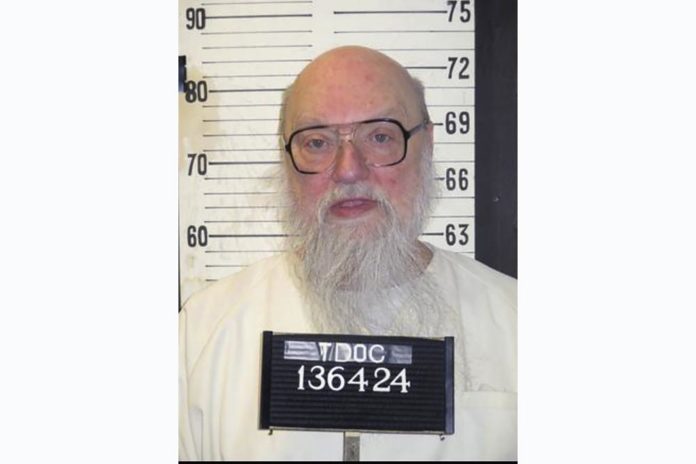
Tennessee’s governor on Thursday called off what was to have been the state’s first execution since the start of the pandemic, granting a temporary reprieve to the oldest inmate on death row for what was called an “oversight” in preparations for the lethal injection.
Republican Gov. Bill Lee didn’t elaborate on what issue forced the surprise 11th-hour stop to the planned execution of 72-year-old Oscar Smith. The inmate was to have received a three-drug injection only a short while later in the evening at a Nashville maximum-security prison.
“Due to an oversight in preparation for lethal injection, the scheduled execution of Oscar Smith will not move forward tonight. I am granting a temporary reprieve while we address Tennessee Department of Correction protocol,” Lee said in a statement on Thursday evening. “Further details will be released when they are available.”
Smith was convicted of the 1989 killings of his estranged wife and her teenage sons. Shortly before the governor’s surprise announcement, the U.S. Supreme Court had denied a last-hour bid by Smith’s attorneys seeking to block the execution plan.
Dorinda Carter, a Department of Correction spokesperson, said the state Supreme Court would need to reschedule the execution. She said Smith would be removed from death watch and returned to his cell on death row. She declined to provide any more information and referred questions to the governor’s office.
It was to have been Tennessee’s first execution since the start of the pandemic.
In Houston, Texas’ oldest death row inmate was facing a scheduled execution Thursday evening. Carl Wayne Buntion, 78, was sentenced to death for the June 1990 fatal shooting of a Houston police officer, James Irby, during a traffic stop.
In Tennessee, authorities had said earlier that the state was planning for five executions this year, including Smith’s. It has been seeking to resume its quick, pre-pandemic pace of putting inmates to death. The five pending death warrants tie Tennessee with Texas for the most nationally this year, according to the Washington-based nonprofit Death Penalty Information Center.
Smith had initially been scheduled for a June 2020 execution, one of several dates delayed because of the pandemic.
Smith was convicted of fatally stabbing and shooting Judith Smith and her sons Jason and Chad Burnett, 13 and 16, at their Nashville home on October 1, 1989.
Smith has maintained he is innocent. In a clemency filing rejected Tuesday by Lee, Smith’s legal team claimed problems with the jury in his 1990 trial.
His attorneys were earlier denied requests to reopen his case after a new type of DNA analysis found the DNA of an unknown person on one of the murder weapons.
The state has not conducted any executions since February 2020, when Nicholas Sutton died in the electric chair for the killing of a fellow inmate in an east Tennessee prison. Of the seven inmates Tennessee has put to death since 2018 — when Tennessee ended an execution pause stretching back to 2009 — only two died by lethal injection.
Smith had earlier declined to choose between the chair, and lethal injection, so lethal injection became the default method.
Tennessee uses a three-drug series to put inmates to death: midazolam, a sedative to render the inmate unconscious; vecuronium bromide, to paralyze the inmate; and potassium chloride, to stop the heart.
Officials have said midazolam renders an inmate unconscious and unable to feel pain. Expert witnesses for inmates, however, say the drugs would cause sensations of drowning, suffocation, and chemical burning while leaving inmates unable to move or call out. The assessment has led to more inmates selecting the electric chair over lethal injection.
In Oklahoma last October, an inmate put to death using the same three-drug lethal injection convulsed and vomited after receiving midazolam. Oklahoma has carried out three lethal injections since, without similar reactions reported.
Republished with the permission of the Associated Press.













